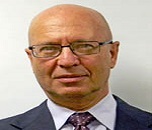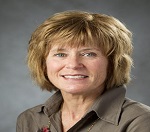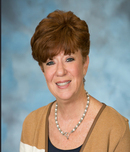Session and Tracks
Track: 01 Nursing Education & Research
Nurse education consists in the theatrical and practical training provided to nurses with the purpose to prepare them for their duties as nursing care professionals. This education is provided to nursing students by experienced nurses and other medical professionals who have qualified or experienced for educational tasks. Most countries offer nurse education courses that can be relevant to general nursing or to specialized areas including mental health nursing, pediatric nursing and post-operatory nursing. Nursing research is a planned attempt to increase nursing knowledge by the discovery of new facts through systematic enquiry. It includes: Improvement in patient care, Reduced cost of care provision, Accountability and protection against litigation, Addition to the existing body of knowledge, Enhancement of nursing as a profession.
Nursing research falls to a great extent into two zones:
-
Quantitative exploration is situated in the standard of intelligent positivism and is cantered upon results for customers that are quantifiable, for the most part utilizing measurements. The prevailing exploration technique is the randomized controlled trial.
-
Qualitative exploration is situated in the standard of phenomenology, grounded hypothesis, ethnography and others, and inspects the experience of those accepting or conveying the nursing consideration, concentrating, specifically, on the implying that it holds for the person. The examination strategies most normally utilized are meetings, contextual analyses, Centre gatherings and ethnography
This session includes Family Nurse Practitioner Education, Neonatal Nurse Practitioner Education, Psychiatric Nurse Practitioner Education, Nursing Research, Registered Nursing (RN), Nursing in United States, Nursing in San Francisco, Nursing Management & leadership, Nursing Science, awareness and development, NCLEX, Advanced Practice Registered Nurse (APRN) and Fellow of the American Academy of Nursing (FAAN).
Recommended Nursing Conferences | Nursing Education Conferences | Nurse Practitioners Meetings | Conference Series LLC Ltd:
Related Societies and Associations:
International Council of Nurses, American Psychiatric Association; American Urological Association; American Medical Association;American Association of Public Health Physicians; American Assisted Living Nurses Association, American Forensic Nurses, American Nursing Informatics Association, National Association of School Nurses, National Student Nurses Association
Track: 02: Family Medicine
Family Medicine is the medical specialty which provides continuing, comprehensive health care for the individual and family. It is a specialty in breadth that integrates the biological, clinical and behavioral sciences. Family medicine is a therapeutic forte committed to extensive social insurance for individuals of all ages; the specialist is named a family doctor, family specialist, or once in the past family professionals. It is a division of primary health care that gives proceeding with and thorough medicinal services for the individual and family over all ages, genders, Migrant Health Infectious diseases, and parts of the body. It is in a knowledge of the patient in the connection of the family and the group, emphasizing disease prevention and wellbeing advancement. As indicated by the World Organization of Family Doctors, the point of family medicine is to give individual, comprehensive, and proceeding with look after the person in the connection of the family and the community.
Respondents with a primary care physician, rather than a specialist, as a personal physician were more likely to be women, white, live in rural areas, report less therapeutic determinations and higher health perceptions and have lower annual healthcare expenditures (mean: $2029 vs. $3100) and lower mortality (hazard ratio = 0.76, 95% confidence interval [CI], 0.64-0.90). After adjustment for demographics, health insurance status, reported diagnoses, health perceptions, and smoking status, respondents reporting using a primary care physician compared with those using a specialist had 33% lower annually adjusted health care expenditures and lower adjusted mortality (hazard ratio = 0.81; 95% CI, 0.66-0.98).
This session includes Family Practice, Family Healthcare, Family Planning Methods, Family Physician, Family Medicine case report, Advances in Family Medicine and Family Medicine and its Effects on Nursing.
Recommended Nursing Conferences | Nursing Education Conferences | Nurse Practitioners Meetings | Conference Series LLC Ltd:
Related Societies and Associations:
International Council of Nurses, American Psychiatric Association; American Urological Association; American Medical Association; American Association of Public Health Physicians; American Assisted Living Nurses Association, American Forensic Nurses, American Nursing Informatics Association, National Association of School Nurses, National Student Nurses Association
Track: 03: Nursing Practice
Nursing Practice is a science, as well as art. It is a complex ever-changing profession with ethics, standards, and best practices to improve your quality of care. Nurses are trained to tailor their practices and give patients care that suits their needs. The nursing practice involves core involvements with research development, implementation, and analysis. Improving patients safety by improving quality in nursing care is the main component of their practices with specialized knowledge, skill, and independent decision making.
This session includes Nursing Practice Model Reform, Neonatal Nurse Practitioner, Family Nurse Practitioner (FNP), Acute Care Nurse Practitioner, Occupational Health Nurse Practitioner.
Recommended Nursing Conferences | Nursing Education Conferences | Nurse Practitioners Meetings | Conference Series LLC Ltd:
Related Societies and Associations
International Council of Nurses, American Psychiatric Association; American Urological Association; American Medical Association; American Association of Public Health Physicians; American Assisted Living Nurses Association, American Forensic Nurses, American Nursing Informatics Association, National Association of School Nurses, National Student Nurses Association
Track: 04: Clinical Nursing
Clinical Nursing is propelled field, which means you could also become employed in education and leadership roles. The work covers some regular areas including emergency care, pediatrics, and geriatrics. There is a high market for clinical nurse specialists particularly, as they are so experienced in sophisticated technologies.
The skills and techniques in clinical nursing are fundamental for better patient results, it includes certain basic to complex techniques such as monitoring, time management, critical thinking at various situations, Judgment and Decision Making which is Considering the relative costs and benefits of potential activities to choose the most appropriate one. In this manner, certain abilities and methods are rehearsed and finished with a general mind.
This session includes Skills and techniques in Clinical Nursing, Clinical Practices, Professional career development of Clinical Nurses, Clinical Nursing and Nursing Theory, Clinical Nursing and Clinical Evaluation and Men in nursing.
Recommended Nursing Conferences | Nursing Education Conferences | Nurse Practitioners Meetings | Conference Series LLC Ltd:
Related Societies and Associations
International Council of Nurses, American Psychiatric Association; American Urological Association; American Medical Association;American Association of Public Health Physicians; American Assisted Living Nurses Association, American Forensic Nurses, American Nursing Informatics Association, National Association of School Nurses, National Student Nurses Association
Track: 05: Public Health
Public Health is defined as the science of protecting the safety and improving the health of communities through education, policy making and research for disease and injury prevention. The definition of public health is different for every person. Whether you like to crunch numbers, conduct laboratory or field research, formulate policy, or work directly with people to help improve their health, there is a place for you in the field of public health. Being a public health professional enables you to work around the world, address health problems of communities as a whole, and influence policies that affect the health of societies.
This session includes Global Health, Public Health Nutrition, and Leadership in Public Health, Public Health Concept, and Urban Health vs. Rural Health, Health Reform and Health Risks: Tobacco, Drugs & Alcohol, Health Economics, Environmental Occupational Health Issues, and Infectious Diseases and Antibiotic Resistance.
Recommended Nursing Conferences | Nursing Education Conferences | Nurse Practitioners Meetings | Conference Series LLC Ltd:
Related Societies and Associations
International Council of Nurses, American Psychiatric Association; American Urological Association; American Medical Association;American Association of Public Health Physicians; American Assisted Living Nurses Association, American Forensic Nurses, American Nursing Informatics Association, National Association of School Nurses, National Student Nurses Association
Track: 06: Health Care
Total Worldwide health spending was expected to elevate by 3.9 percent in 2015 afore expediting to an average of 5.15 percent a year over the next four years (2015-2018). The ecumenical mobile health revenue is expected to reach about US$ 23 billion across all stakeholders – mobile operators, contrivance vendors, healthcare providers and content/application players - by 2017. Driven by population magnification and aging, the total number of office visits to primary care medicos is projected to increment from 462 million in 2008 to 565 million in 2025.
Healthcare is the essential health care that is predicated on scientifically sound and universally acceptable methods and technology, which make health care accessible to individuals and families in a community, Improving Quality in Healthcare by Health Promoting Environments & Enhancing Patient Safety in Healthcare. Health promotion practitioners are now facing a more dubious future under a center-right regime whose priorities are considered by many to be at odds with health promotion principles. The present challenges for the health promotion workforce within primary care are Retaining health promotion principles and ideas and the vision of ‘seeking health for all’, Identifying the threats and challenges to the principles of health promotion, whilst withal identifying and fixating on the pending opportunities that will present into the immediate future through rigorous Healthcare-Law, Policy & Regulation, Maintaining fixate on the medium to longer term strategic vision for the development of the Health Status & Care Systems and keep the ‘longer game’ soundly established in the minds of the vocation and developing Research skills for Health care Leadership.
This session includes Primary Healthcare, Medicinal Healthcare, Skin Healthcare, Dental Healthcare, Health Care Financing, Health Information Technology, Healthcare Research, Healthcare Professionals, Healthcare Management, Healthcare System, HIV/AIDS among People and Health Care, Health Promotion/Disease prevention, Health Infections, Diseases and Treatments and Yoga and Physical Therapy.
Recommended Nursing Conferences | Nursing Education Conferences | Nurse Practitioners Meetings | Conference Series LLC Ltd:
Related Societies and Associations
International Council of Nurses, American Psychiatric Association; American Urological Association; American Medical Association;American Association of Public Health Physicians; American Assisted Living Nurses Association, American Forensic Nurses, American Nursing Informatics Association, National Association of School Nurses, National Student Nurses Association
Track: 07: Quality Healthcare
Quality health care means doing the right thing, at the right time, in the right way, for the right person—and having the best possible results. Quality of care plays an important role in describing the iron triangle of health care, which defines the intricate relationships between quality, cost, and accessibility of health care within a community. Researchers measure health care quality to identify problems caused by overuse, underuse, or misuse of health resources. There are six domains to measure and describe quality of care in health:
Safe – avoiding injuries to patients from the care that is intended to help them
Effective – avoiding overuse and misuse of care
Patient-Centered – providing care that is unique to a patient's needs
Timely – reducing wait times and harmful delays for patients and providers
Efficient – avoiding waste of equipment, supplies, ideas, and energy
Equitable – providing care that does not vary across intrinsic personal characteristics
Healthcare quality varies from country to country. For example, some health plans and doctors simply do a better job than others of helping you stay healthy and getting you better if you are ill. Research shows that Americans want and value quality health care.
Recommended Nursing Conferences | Nursing Education Conferences | Nurse Practitioners Meetings | Conference Series LLC Ltd:
Related Societies and Associations
International Council of Nurses, American Psychiatric Association; American Urological Association; American Medical Association;American Association of Public Health Physicians; American Assisted Living Nurses Association, American Forensic Nurses, American Nursing Informatics Association, National Association of School Nurses, National Student Nurses Association
Track: 08: Midwifery and Women Health Nursing
A midwife is a trained health professional who helps healthy women during labor, delivery, and after the birth of their babies. Midwives may deliver babies at birthing centers or at home, but most can also deliver babies at a hospital. The Midwifery is the expert in obstetrics. The term is utilized as a part of a reference to both ladies and men, albeit most birthing specialists are female. Notwithstanding giving consideration to ladies amid pregnancy and conception, some birthing assistants might likewise give essential consideration identified with regenerative wellbeing, including yearly gynecological exams, family arranging, and menopausal consideration.
Women's health nurses work primarily in outpatient care facilities, including primary care clinics, physician offices, community health centers, and college health clinics. They may also practice in long-term care facilities, hospitals, or virtually anywhere that women seek health care. Women's health nurses work under the direction of a doctor or nurse practitioner to provide a wide range of care to women, including some of the following responsibilities. Women's health nurse practitioners are advanced practice nurses (APNs), qualified to provide diagnosis and treatment for all of the health concerns listed above. They are also trained to apply nursing theory and research to clinical practice and may function as researchers, administrators, consultants and educators in the field.
This session includes Midwifery Care, Licensed Direct-entry Midwife (LDM), Midwives in Maternal Care, Certified Nurse Midwife (CNM), Complications during Pregnancy, Physical Activity and Diet during Pregnancy, Modern Technologies in Pregnancy and Child Birth, Women's Health Nurse Practitioner (WHNP), Infertility Evolution and Treatment among Women and Urinary Tract Infection and Condition.
Recommended Nursing Conferences | Nursing Education Conferences | Nurse Practitioners Meetings | Conference Series LLC Ltd:
Related Societies and Associations
International Council of Nurses, American Psychiatric Association; American Urological Association; American Medical Association;American Association of Public Health Physicians; American Assisted Living Nurses Association, American Forensic Nurses, American Nursing Informatics Association, National Association of School Nurses, National Student Nurses Association
Track: 09: Critical Care and Emergency Nursing
Critical care nursing is the field of nursing with a focus on the most extreme consideration of the discriminatingly sick or unsteady patients. Contamination revolution and nursing consideration is the control concerned with turning away nosocomial or health awareness related disease, a functional (as opposed to scholastic) sub-order of the study of disease transmission. Infants who need escalated restorative consideration are regularly conceded into a unique region of the clinic called the Neonatal serious care and nursing consideration. The part of backing in discriminating nursing consideration: Critical consideration medical attendants work in a wide assortment of settings, filling numerous parts including bedside clinicians, attendant teachers, medical caretaker analysts, medical caretaker supervisors, clinical medical caretaker authorities and medical attendant professionals.
Emergency Nursing is a nursing specialty concerned with the care of patients who are experiencing emergencies or who are critically ill or injured. In contrast to most other areas of nursing, in which a patient arrives with a diagnosis applied by a physician, emergency nurses work with patients when a diagnosis has not yet been made and the cause of the problem is not known. Emergency nurses frequently contact patients in the emergency department before the patients see physicians. In this situation, the nurse must be skilled at rapid, accurate physical examination, early recognition of life-threatening illness or injury, the use of advanced monitoring and treatment equipment, and in some cases, the ordering of testing and medication according to "advanced treatment guidelines" or "standing orders" set out by the hospital's emergency physician staff. Emergency nurses most frequently are employed in hospital emergency departments, though they may also work in free-standing emergency centers or urgent care clinics. Behavioral health patients have become an increasing concern for emergency nurses.
This session includes Brain death, Organ donation and Transplantation, Critical Care Registered Nurse (CCRN), Critical Care Nurse Practitioner, The Role of Advocacy in Critical Care, Dimensions and, Limitations in Critical Care Nursing, Care of Patient and Family in Emergency Crisis, Emergency Medicines and Healthcare, New Innovative Ideas and Research in Emergency Nursing, Intensive Care in Emergency, Trauma/injury/burns, Certified Registered Nurse Anaesthetists and Anesthesiology.
Recommended Nursing Conferences | Nursing Education Conferences | Nurse Practitioners Meetings | Conference Series LLC Ltd:
Related Societies and Associations
International Council of Nurses, American Psychiatric Association; American Urological Association; American Medical Association;American Association of Public Health Physicians; American Assisted Living Nurses Association, American Forensic Nurses, American Nursing Informatics Association, National Association of School Nurses, National Student Nurses Association
Track: 10: Psychiatric and Mental Health Nursing
Psychiatric and Mental Health Nursing is a psychiatric assessment or mental screening, is a system of gathering information around a man within a psychiatric (or phrenic wellbeing) accommodation, with the demonstration of making an investigation. The assessment is expectedly the first period of a treatment process, yet psychiatric assessments may moreover be utilized for sundry licit purposes. Care and rest issue. Nursing thought is a class of noetic issue depicted by feelings of mindfulness and fear, where benevolence is anxiety over future events and anxiety is a reaction to current events. There is different generosity issue: including summed up attentiveness issue, a strong apprehension, wonderful apprehensiveness issue, uniqueness consideration issue, agoraphobia, and free for all issue among others. Fundamental noetic therapeutic administrations and nursing is the cup of tea of nursing that watches over people of all ages with noetic illness or phrenic torment, for instance, schizophrenia, bipolar issue, psychosis, demoralization or dementia. Stress and emotional treatment studies and results is may develop after a man is displayed to one or more traumatic events, for instance, genuine stretch, assault, terrorism, or distinctive perils on a man's life. Electroconvulsive therapy and effects treatment is a technique in which electric streams have experienced the cerebrum, purposely setting off a brief seizure. A round of ECT is helpful for around 50% of people with the treatment-safe genuine depressive issue, whether it is unipolar or bipolar.
This Session includes Psychiatric Issues, Family Therapy in Nursing, Cognitive Behavioral Therapy, Positive Psychology, Tele Psychiatry, Sexual Disorders, and Mental Health, Mental Healthcare, Mood Disorders, Stress, Depression, Mental Health Disorders and Forensic Psychiatry.
Recommended Nursing Conferences | Nursing Education Conferences | Nurse Practitioners Meetings | Conference Series LLC Ltd:
Related Societies and Associations
International Council of Nurses, American Psychiatric Association; American Urological Association; American Medical Association;American Association of Public Health Physicians; American Assisted Living Nurses Association, American Forensic Nurses, American Nursing Informatics Association, National Association of School Nurses, National Student Nurses Association











